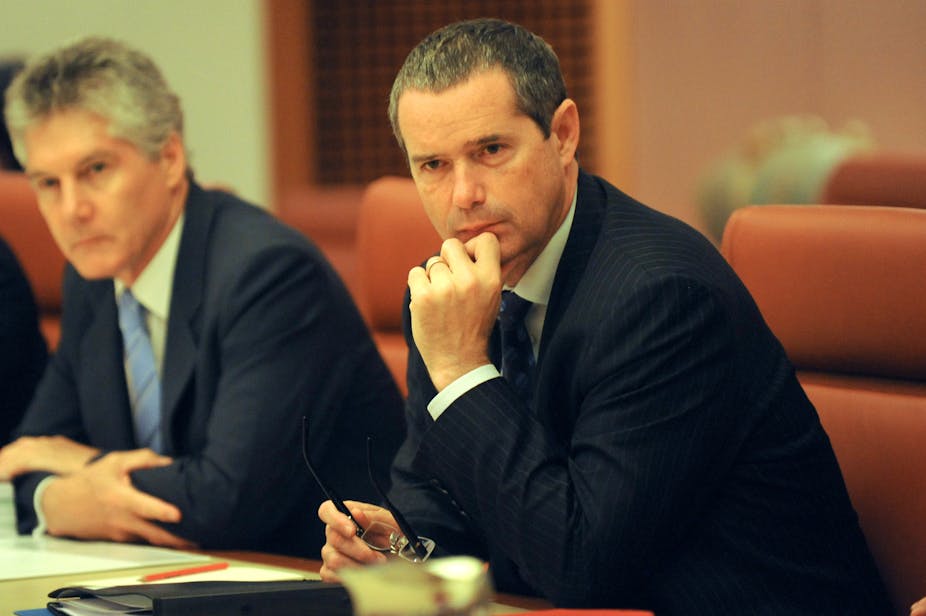To get an idea of how big an opportunity the federal government missed with its shambolic attempt at media reform, consider this: the last federal minister to achieve any substantive reform of media self-regulation was Dr Moss Cass, Minister for the Media in the Whitlam Government 38 years ago.
Dr Cass, now aged 86, did it by provocation. In August 1975 he issued a media release saying that the establishment of an Australian Press Council was “desirable and practicable”. For debate only – and not part of his recommendation for a press council – he set out other options for media accountability. They included the establishment of an Australian Newspaper Commission, a kind of print version of the ABC, and – most provocatively of all – a press licensing system.
The newspaper proprietors did the usual thing: they went ballistic. Dr Cass put out another media release in which he said his proposal for a press council had been subjected to “bizarre distortion and hysterical over-reaction”. Some things never change.
But he had scared the proprietors, and now they decided to act. In November 1975 they announced the formation of the Australian Press Council.
Straightaway it ran into one of the biggest problems that Senator Stephen Conroy tried this week to fix: the propensity of the newspaper companies to come and go from the Council as they please – or to not join at all. Sir Warwick Fairfax, then chairman of what is now Fairfax Media, majestically dismissed the Council’s invitation:
“We not only decline to join the Council, we believe that in principle the formation of such a Council was not in the interests of the ideals and aims which newspapers pursue …”
This is of course the self-same Press Council now held up by the newspaper companies as the soul of self-regulatory virtue.
Conroy tried to overcome the weakness inherent in voluntary membership of the Press Council by introducing a law saying that the newspaper companies must join an approved self-regulatory body or lose their immunity from the operations of the Privacy Act, something they value highly for obvious reasons.
Unfortunately, he messed this up in two ways.
First he opened the possibility that there could be any number of press councils, a ludicrous proposition which would have created endless complexity for the public and self-destructive fragmentation for any system of accountability.
After much behind-the-scenes negotiation, it was proposed that the existing Press Council be the sole accountability body, and the breakaway council formed by Seven West Media – with the Orwellian name of the Independent Media Council – be grandfathered.

Second, Conroy proposed to place the approval and monitoring of this accountability body in the hands of a single part-time public servant appointed by the Minister, the so-called Public Interest Media Advocate (PIMA). Such an office would have lacked any real independence, being dependent on the Minister’s department for resources as well as being in thrall to the Minister for tenure.
More behind-the-scenes negotiation led to various proposals for beefing up the independence of this office, including the creation of a panel in place of a single PIMA and its appointment by a committee of the great and good, similar to the process used for appointing the board of the ABC.
By this time, though, two of the independents – Rob Oakeshott and Andrew Wilkie – had written the whole thing off, and late in the week the Government withdrew the bills, just in time to prevent them being engulfed by Simon Crean’s strange leadership tsunami.
So where to from here?
As the cold light of day dawns on the broken landscape of media reform, one gives thanks for Julian Disney.
Professor Disney is the chair of the Press Council. He gave courageous testimony at the Senate committee of inquiry into the media reforms this week, saying he personally was prepared to support some degree of statute-based self-regulation, so long as the statutory involvement was confined to establishing benchmarks and requiring reviews of performance. He also said that the Council itself was divided on this question.
He has been a strong and reforming chair, skilfully using the leverage supplied by the Finkelstein Inquiry and Convergence Review to extract more money from the newspaper companies to finance the Council, and embarking on a long overdue process of establishing better and more sophisticated media standards on matters such as suicide and access to patients in hospitals.
It was he, as much as anyone, who tried to salvage something sensible from the wreckage of the Conroy juggernaut. It is he who now has to try to ride out the resultant turbulence and keep his own reform program alive. This includes getting the power for the Council to conduct own-motion investigations, and introducing independent triennial reviews of its performance.
In the aftermath of this week’s events, the attitude of the newspaper companies is unpredictable.
Have these events scared them, as Moss Cass’s proposal did in 1975, making them more amenable to Press Council reform, or will they be awash with hubris, thinking they have seen off Conroy and are immune for another 38 years?

